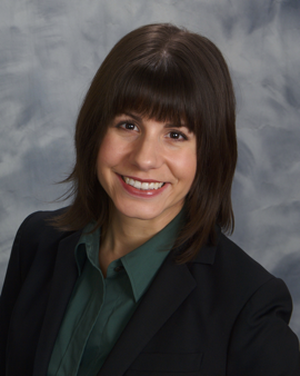
Mary works as a Business Development Manager in the healthcare industry, where she is responsible for collaborating with clients and colleagues across the industry. She completed her BA in 2003 and her MS in Health Communication in 2012. The research, writing, and strategic communication skills she gained at a Communication major are central to her day-to-day efforts. In this spotlight, Mary discusses how transferrable she had found her Communication knowledge and skills to be.
- What are your responsibilities in your current position?
I work for a large healthcare company -a Pharmacy Benefits Manager (PBM) - as a Business Development Manager. My responsibilities are focused on managing elements of sales, marketing and product development for some of our key programs that we offer or up-sell to clients. In this role, I research new business opportunities, identify likely sales targets, develop strategic plans and sales strategies, and then undertake presentations and negotiations to and with prospective customers.
- In what ways do you use your communication education in your career?
Over the past 7 years, I have held a number of positions within my company but each has involved a client-facing position on behalf of both our internal and external customers. In those roles, my performance reviews have noted my ability to be articulate, to develop and maintain positive working relationships, and an ability to demonstrate tact and diplomacy when dealing with people. My interpersonal training has definitely helped me in that sense. I also feel a confidence in myself to appropriately express a message, recognize and receive feedback, as well as offer appropriate feedback. I credit my communication courses with giving me the skill sets to develop these qualities.
Early on in my career, I never hesitated to speak to a group on an impromptu basis in both formal and informal situations. When I first started working at my company, I was in a more behind-the-scenes, marketing role. I can recall the very first time I was asked to present something to a large group. First of all, I approached the request as I would a speech assignment, clearly stating my goals and objectives, what I would be reviewing, and then a clear summary at the end. The reaction to my presentation blew me away! My coworkers and peers could not stop complimenting me on what a good presenter I was and how I showed no signs of nervousness. From then on, as I gained more responsibility in the organization, I have been counted on to go in front of any audience and be able to present a well-crafted and well-delivered sales pitch. Having a communication background has been instrumental in being able to adapt a message to a variety of internal and external audiences. I can stick to the message and not get sidetracked, which so often happens in corporate presentations!
- What was the best class you took in the Communication Department and why?
I don’t know that I can choose just one, but here are some of my highlights! As an undergrad TA for the Speech Comm 101, I learned how to critique—how to properly offer feedback, as well as how to receive feedback. That has helped me tremendously as I ask for, or are given feedback on my job performance. When studying interpersonal communication, I gained insights as to the influence that nonverbals play in the communication process. As a result, I am more attuned to not only the nonverbal messages that I send, but to reading those of others. When studying organizational communication, I gained tremendous value from learning about the “business” side of communication, including leadership and working within groups and teams.
- What did you enjoy about being a Communication major at the University of Illinois?
Being a Communication major offered me a variety of courses, opportunities and experiences both as required courses and as electives. We are very lucky that the University of Illinois has both a breadth and depth of classes taught by leaders in the field. And because class size allows for interaction with both faculty and classmates, we were able to get to know each other well! Being in the corporate world, I can appreciate each course even more. I’ve mentioned a few of those course take-aways already, but can appreciate some others. For example, I remember a course about communication techniques and patterns with small children. My experiences with recording observations and dialogue have helped me pay attention to small details. I can also recall my first course on health communication; the course ended up being an asset when my career took me into the healthcare field.
- What advice do you have for undergraduate students who are majoring or minoring in Communication?
When I was an undergrad, it was sometimes challenging to think about potential career paths, as a communication degree is not a job title such as teacher, engineer or accountant. While I loved taking classes that interested and challenged me, there was not one straight path towards any specific career. That however, IS one of the biggest advantages of a communication degree. With such a variety of courses and areas of emphasis, students really have the opportunity to discover what they enjoy—both personally as well as academically. From there, communication undergrads have the opportunity to fit themselves into a variety of settings and industries. As such, my advice would be to fully take advantage of the variety and diversity of courses offered, even if it doesn’t seem to lean toward one “specific” career area. Specific skills and tasks can always be learned on the job, but practical knowledge of how to communicate and relate to others is invaluable in getting that job, keeping it and growing within the organization.
I would also suggest that students get to know faculty members, who can be a tremendous asset for advice in the field, as well as for writing letters of recommendation!